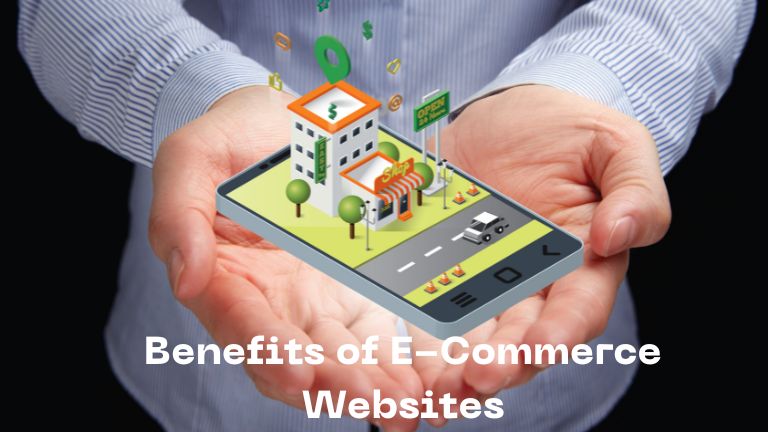Hiring a Professional E-Commerce Development Company in London
While building an e-commerce website can be a DIY project, hiring a professional development company can ensure a smooth and hassle-free process. A professional team can provide expert guidance on choosing the right platform, designing your website, and optimizing it for search engine optimization (SEO). Moreover, they can also offer ongoing support and maintenance to ensure your website runs smoothly.
A professional e-commerce development company can also provide ongoing support and maintenance for your website, ensuring that it remains up-to-date and running smoothly.
Tips for Successful E Commerce Website Development London
Here are some tips to help you ensure the success of your e-commerce website development project in London:
Research and Plan
Do your research and plan thoroughly before starting the development process. This includes identifying your target audience, competitors, and unique selling points.
Focus on User Experience
Ensure that your e-commerce website is easy to navigate, mobile-friendly, and visually appealing. A positive user experience can significantly impact the success of your online store.
Prioritize Security
Protect your customers’ sensitive information by using a secure payment gateway and ensuring that your website is SSL certified.
Optimize for SEO
Optimizing your e-commerce website for search engines can significantly increase your online visibility and drive more traffic to your store. This includes optimizing your product descriptions, titles, and images, and creating high-quality content.
Integrate Social Media
Integrate your social media channels into your e-commerce website to promote your products and engage with your audience.
How much does it cost to build an e-commerce website in London?
The cost of building an e-commerce website in London can vary depending on the complexity of the website, the features required, and whether you hire a professional development company or build it yourself. It’s best to get a quote from a few development companies to determine the cost.
Benefits of E-Commerce Websites

Before delving into the details of building an e-commerce website, let’s first discuss the benefits of having one for your business. Some of the most significant advantages are:
Reach a Wider Audience
An e-commerce website allows you to reach a wider audience, beyond your local geographical boundaries. With an online store, your products or services can be accessible to anyone worldwide, enabling you to expand your business.
Increased Sales and Revenue
An online store enables you to sell products or services 24/7, which can significantly increase your sales and revenue. As people are now more inclined towards online shopping, having an e-commerce website can give you an edge over your competitors.
Cost-Effective
Compared to a brick-and-mortar store, an e-commerce website is more cost-effective. It eliminates the need for renting physical space, paying utility bills, and hiring staff. This can lead to significant cost savings for your business.
Enhanced Customer Experience
An e-commerce website provides customers with convenience, as they can shop from anywhere and at any time. Additionally, online stores can offer personalized recommendations, promotions, and loyalty rewards, leading to an enhanced customer experience.
Steps for Building an E-Commerce Website
Now that we’ve discussed the benefits of an e-commerce website, let’s delve into the steps involved in building one.
Step 1: Choose a Domain Name and Web Hosting
The first step is to choose a domain name for your website, which should reflect your brand name. You will also need to select a reliable web hosting provider that can ensure your website is accessible 24/7.
Step 2: Select an E-Commerce Platform
There are various e-commerce platforms available, such as Shopify, WooCommerce, and Magento, each with its own unique features. You will need to select a platform that meets your business needs and budget.
Step 3: Design and Develop Your Website

The design and development of your e-commerce website should be visually appealing, easy to navigate, and mobile-friendly. Ensure that your website has a secure payment gateway to protect your customers’ sensitive information.
Step 4: Add Products and Categories
Once your website is up and running, it’s time to add your products or services, along with their descriptions, prices, and images. You will also need to organize them into categories to make it easier for customers to find what they’re looking for.
Step 5: Set Up Payment and Shipping Options
Ensure that your e-commerce website has multiple payment options, such as credit/debit cards, PayPal, and Apple Pay, to cater to a wider audience. Additionally, set up shipping options, such as free shipping, flat rate, or weight-based shipping, depending on your business requirements.
Step 6: Test and Launch Your Website
Before launching your website, test it thoroughly to ensure that everything is working correctly. This includes checking for broken links, testing the payment gateway, and verifying the order processing and shipping.
How to Optimize Success During the Post-Launch Phase
After launching your e-commerce website, the journey toward achieving operational excellence begins with mastering online fulfillment and logistics management. The key to success lies in leveraging innovative solutions that simplify the complexities of the process, encompassing everything from inventory management and warehousing to the final steps of packing and shipping. Integrating such streamlined services into your e-commerce operations can dramatically boost your efficiency, shorten delivery cycles, and elevate the overall customer experience. This strategic approach allows businesses to concentrate on growth and expansion, secure in the knowledge that the logistical intricacies are expertly managed.
Conclusion
In conclusion, an e-commerce website can provide numerous benefits to your business, including increased sales, wider audience reach, and cost savings. Building an online store involves several steps, such as choosing a domain name and web hosting, selecting an e-commerce platform, designing and developing your website, and adding products and categories.
If you’re located in London and need assistance with building an e-commerce website, consider hiring a professional e-commerce development company. With their expertise, you can ensure a smooth and hassle-free process, resulting in a successful online store for your business.
